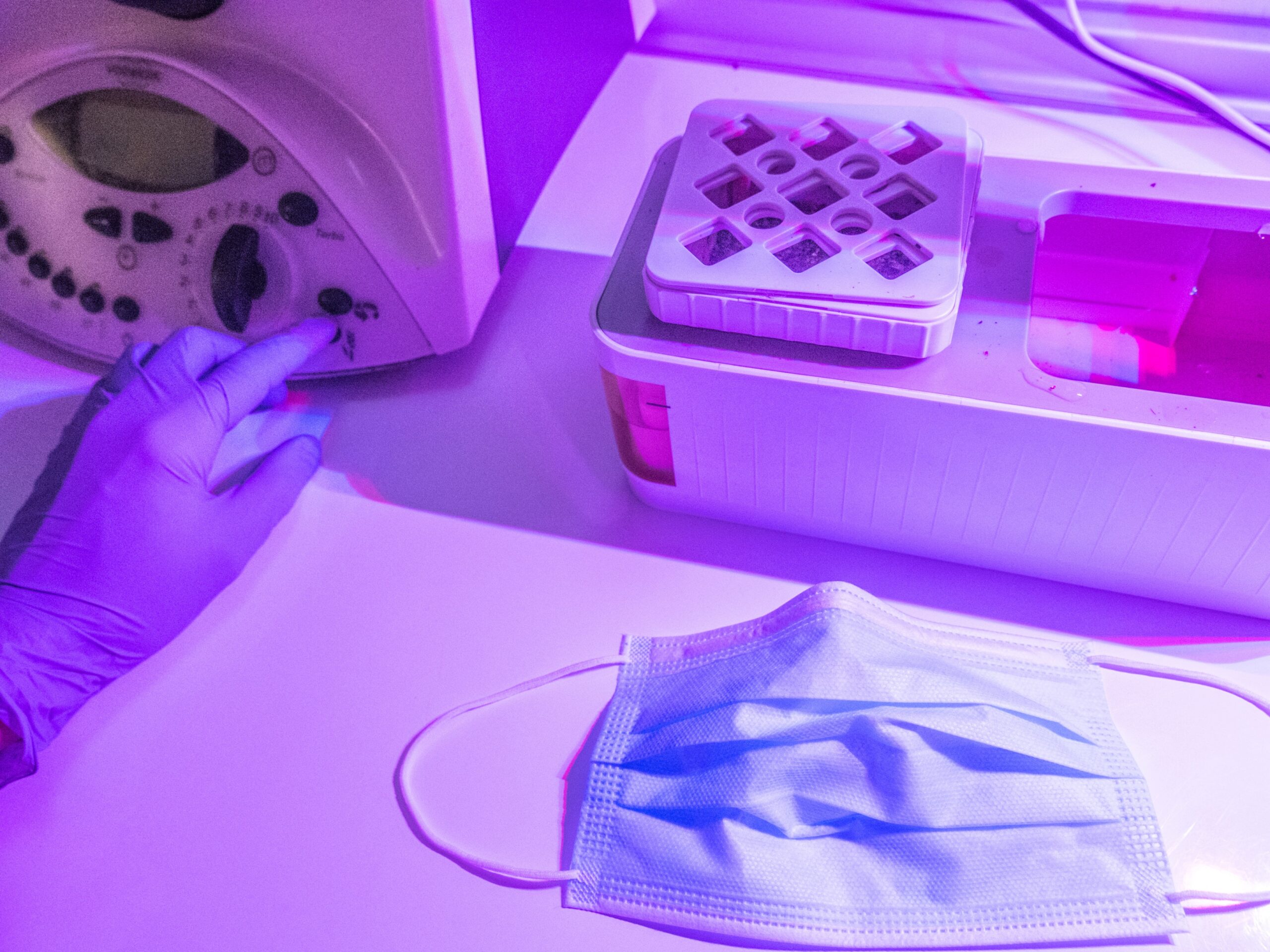“With the approaching flu season, this new test is particularly important as SARS-CoV-2 and influenza infections can hardly be differentiated by symptoms alone. Now, with a single test, healthcare professionals can confidently provide the right diagnosis and most effective treatment plan for their patients,” said Thomas Schinecker, CEO of Roche Diagnostics. “As a leader in diagnostics testing solutions, this launch demonstrates our ongoing commitment to stop the spread of serious infectious diseases by increasing access to accurate, reliable and efficient testing options.”
From the Roche media release:
“About cobas SARS-CoV-2 & Influenza A/B Test
The cobas SARS-CoV-2 & Influenza A/B Test is a multiplex reverse transcription polymerase chain reaction (RT-PCR) assay intended for the simultaneous qualitative detection and differentiation of SARS-CoV-2, Influenza A virus, and Influenza B virus in nasal or nasopharyngeal swab samples collected from individuals suspected of a respiratory infection, and is not intended for the detection of Influenza C virus. Under FDA EUA, the test can be taken by individuals suspected of a respiratory viral infection like COVID-19 by their healthcare provider. The test runs on the cobas 6800/8800 Systems and has a full-process negative control, positive control and internal control. Multiplexing will increase lab efficiency and save resources in the labs.
Negative results do not preclude infection from SARS-CoV-2 or Influenza virus and should not be used as the sole basis of treatment or other patient management decisions. Negative results must be combined with clinical observations, patient history and epidemiological information.
The cobas SARS-CoV-2 & Influenza A/B Test is intended for use by trained clinical laboratory personnel specifically instructed and trained in the techniques of real-time PCR and in vitro diagnostic procedures. In the United States, the cobas SARS-CoV-2 & Influenza A/B Test for use on the cobas® 6800 and cobas® 8800 Systems is only for use under the FDA’s Emergency Use Authorization.
About Emergency Use Authorization status
The cobas SARS-CoV-2 & Influenza A/B Test has not been FDA cleared or approved. It has been authorised by the FDA under an EUA for use by laboratories certified under the Clinical Laboratory Improvement Amendments of 1988 (CLIA), 42 U.S.C. § 263a, to perform moderate and high complexity tests. The test has been authorised only for the detection of RNA from SARS-CoV-2 virus, Influenza A virus, and Influenza B virus and not any other viruses or pathogens. It is only authorised for the duration of the declaration that circumstances exist justifying the authorisation of the emergency use of in vitro diagnostics for detection and differentiation of SARS-CoV-2 virus, Influenza A, and Influenza B under section 564(b)(1) of the Act, 21 U.S.C. § 360bbb- 3(b)(1), unless the authorisation is terminated or revoked sooner.”
The company recently announced plans to ship 40 million antigen-based rapid tests by the end of the month beginning in Europe; the point of care diagnostic could provide results within 15 minutes and is being submitted to the FDA for review.
While the company did not state a production goal for this Rona/flu test, they did say that they plan to deliver “as many tests as possible within the limits of supply.”
“Especially in the upcoming flu season, it is important to know whether a person has SARS-CoV-2 or the flu to ensure the right course of treatment,” Roche Diagnostics CEO Thomas Schinecker said. “COVID-19 testing solutions that provide healthcare professionals and patients with a quick answer regarding their infection status are critical to contain the community-spread of the COVID-19 virus.”
The biotech also recently announced receiving FDA approval for a qualitative molecular diagnostic for HIV, combining confirmatory testing of an acute infection while differentiating between HIV-1 and HIV-2 to help guide treatment protocols.
“Roche is committed to improving diagnostic technologies in the fight against HIV/AIDS,” said Thomas Schinecker, CEO Roche Diagnostics. “Being able to reliably determine a person’s HIV status and accurately diagnose which HIV type they may have is crucial for patients and healthcare providers in preventing further community transmission and selecting an individual’s best treatment options.”




